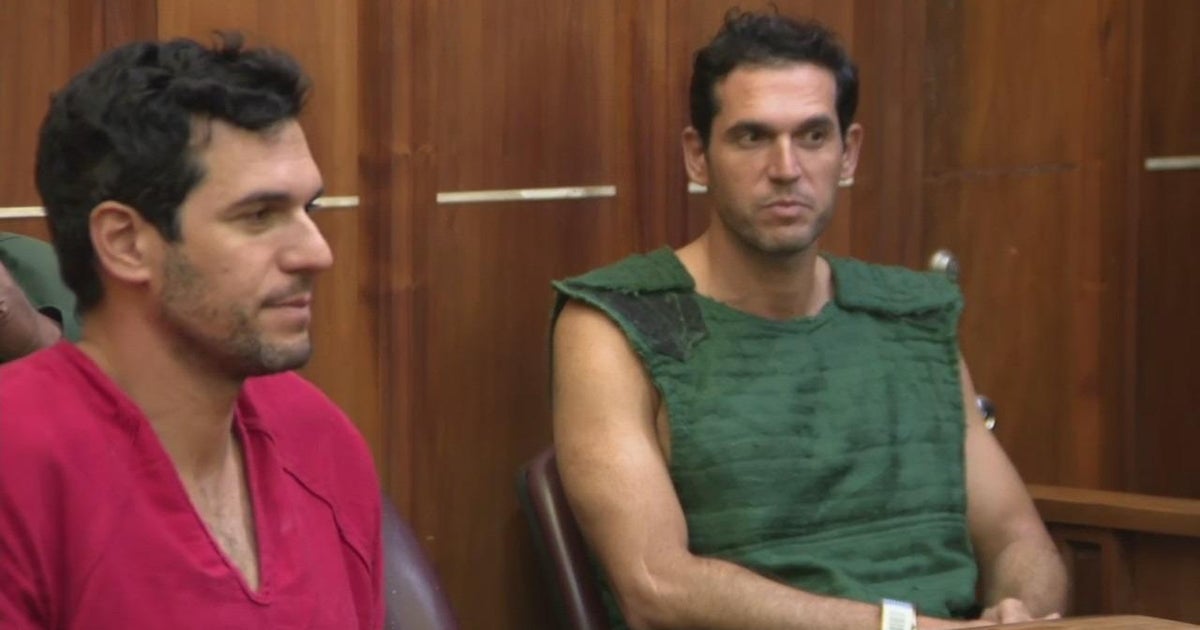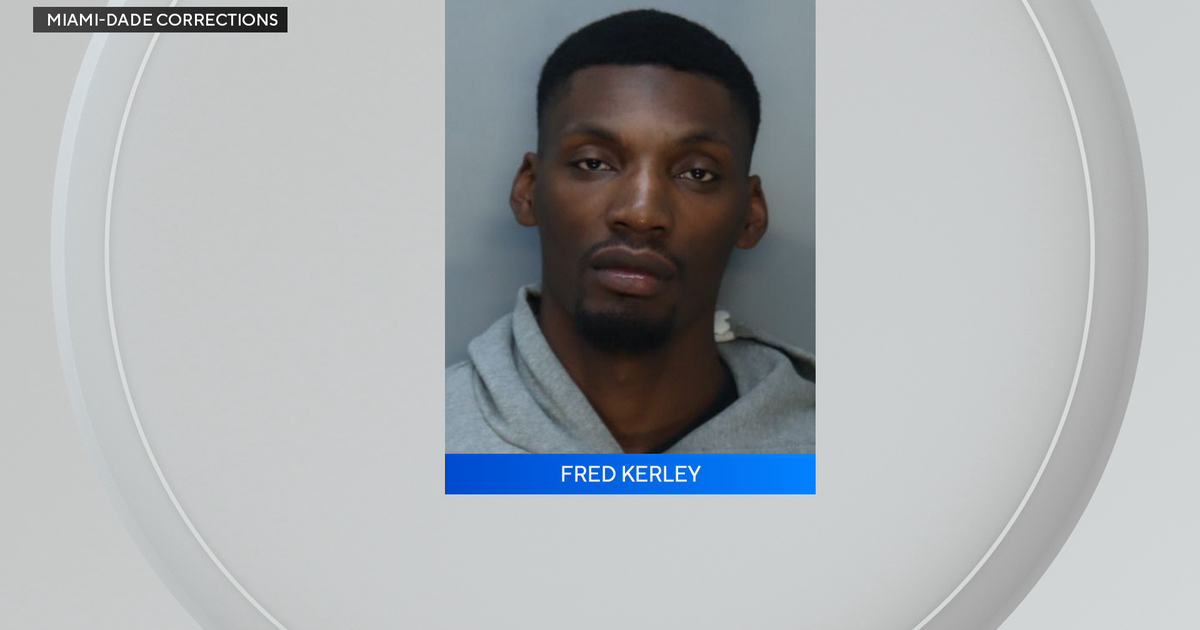No Bail For Drug "Queenpin" Extradited To Miami
MIAMI (CBSMiami) — Drug kingpins are common, but a "queenpin" in Miami is awaiting trial on cocaine-trafficking charges.
CBS4 news partner The Miami Herald reports Sandra Avila Beltrán, the reputed "Queen of the Pacific" in the Colombian-Mexican drug trade, must stay behind bars in a downtown Miami detention center while she awaits trial on cocaine-trafficking charges in federal court.
"I haven't heard any argument that she would stay put if released on bond," Magistrate Judge Patrick White ruled at her bail hearing Tuesday.
The once-fashionable Avila was dressed in a drab khaki prison suit and orange rubber clogs, with shackles on her wrists and ankles. The 51-year-old, whose famous raven hair flowed beyond her shoulders, was extradited from Mexico last week after fighting her turnover to U.S. authorities following her arrest in 2007.
Her arraignment on charges of conspiring to smuggle and distribute loads of cocaine was continued until Sept. 14. Prosecutor Cynthia Wood argued that the evidence against her was "strong," but Avila's attorney Stephen Ralls called it "weak."
Avila's reputation as the Queen of the Pacific was gained by her dominant role in the powerful Sinaloa cartel, her romantic relationship with a Colombian drug kingpin and her influence over ocean supply routes.
This summer, a Mexican court granted her extradition to face the U.S. narco-trafficking indictment, which has alleged links to a cocaine deal in Chicago and a cocaine seizure in Manzanillo.
In September 2001, federal agents intercepted a telephone call in which Avila allegedly sought payment for 220 pounds of cocaine delivered in Chicago.
It's unclear who allegedly spoke to Avila in the potentially critical wiretapped call that the prosecutor says put her in the trafficking conspiracy. The caller, described as a "cooperator" working with investigators, was based in Miami.
Avila is also implicated in a conspiracy with her former boyfriend, Colombian kingpin Juan Diego Espinosa, and other members of the North Valley Cartel to ship nine tons of cocaine. Authorities seized the shipment on a tuna boat off the Pacific port of Manzanillo later that year.
"Both of those [incidents] go together in our investigation," Drug Enforcement Administration Agent Stephen Kepper testified Tuesday, when challenged by Avila's attorney about the indictment's integrity.
In Avila's case, at least one convicted defendant has been cooperating with authorities. His name: Leyner Valencia Espinosa, the brother of her one-time Colombian boyfriend.
The 2004 federal indictment charged Espinosa, Avila and five others with the drug-trafficking conspiracies. Espinosa, who initially received a 22-year prison sentence, saw it cut by half for his cooperation. The other defendants, including Espinosa family members, also pleaded guilty. Avila, now in custody, and Julio Beltrán, a fugitive but no relation, remain as defendants in the case.
In the ruling on her bail, the magistrate judge said he did not believe Avila was a "danger to the community," as the prosecutor argued, because she has been incarcerated for years. But White found she was a "risk of flight" because she has no ties to the South Florida community and faces a long prison sentence if convicted.
Mexicans, along with the media, have long been fascinated with Avila, following details of her taste for high fashion, gourmet food and beauty secrets. One rumor that made the rounds: A doctor visited her while she was jailed in Mexico to administer her Botox injections.
Much of the fascination with Avila is because of her sex. For decades, narco-trafficking has been dominated by macho men, but experts say women have always played a key role in Mexican drug organizations.
(©2012 CBS Local Media, a division of CBS Radio Inc. All rights reserved. This material may not be published, broadcast, rewritten, or redistributed. CBS4 news partner The Miami Herald contributed material for this report.)



